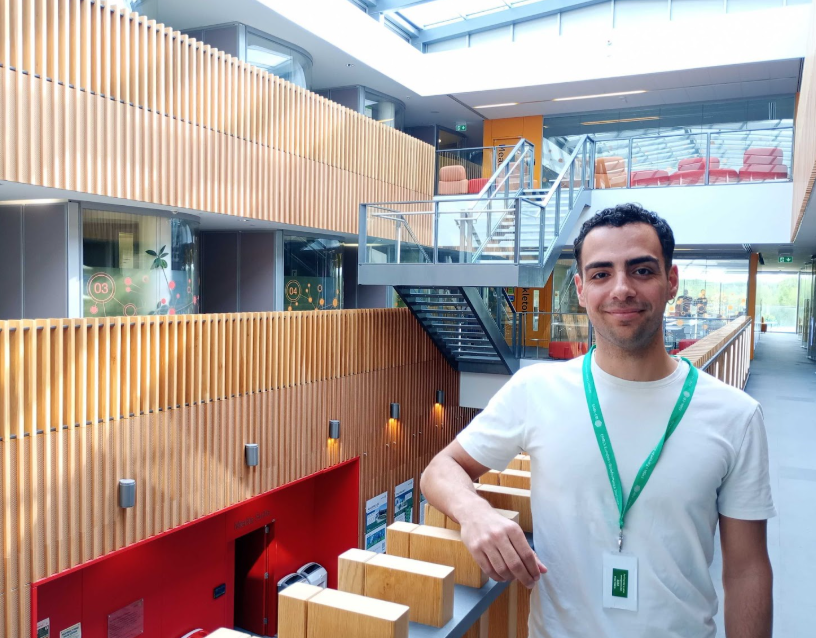From intern to on-demand course author
Charalambos (Harry) Roussos is a third-year PhD student in the Department of Physiology, Development, and Neuroscience at the University of Cambridge. As part of the School of Biological Sciences Doctoral Training Programme, he undertook a twelve-week placement at EMBL’s European Bioinformatics Institute (EMBL-EBI). Read on for Harry’s review of the placement, and the on-demand course that he’s produced with us.

After three years developing analytic pipelines in a noble attempt to decode the Notch signal – and occasionally managing to communicate with the biologists in my lab – I was looking for a placement with plenty of computational people to talk to, where daily debates weren’t solely about transcriptional mechanisms and confocal microscopy. After attending a Doctoral Training Partnership symposium and chatting with several potential placement hosts, the EMBL-EBI training team immediately stood out. I was drawn to the idea of joining Europe’s largest provider of data and bioinformatics, and the project was clear: create my own online on-demand tutorial on a subject of my choice – essentially, a fast track to eternal fame.
From day one, the training team welcomed me as one of their own, involving me in projects at every opportunity and genuinely investing in my experience. To my own amazement at my newfound social stamina, during the placement, I attended and facilitated seven in-person training courses. The topics covered a broad spectrum, ranging from multi-omics data integration and gene-environment interaction to competency building in AI and train-the-trainer workshops.
These experiences introduced me to a vibrant, international bioinformatics community, where not only did I deepen my academic understanding through expert insights, but I also took on an active role in facilitating learning. From introducing EMBL-EBI data resources through opening talks, to contributing meaningfully in discussions, note-taking, and sharing reflections in a RItrainPlus blog post, I found myself growing rapidly in areas like leadership, teaching, and science communication – skills that would have taken much longer through traditional academic routes!
Alongside the in-person training experience – and always with the patient support of my supervisors, Ajay Mishra and Anna Swan – I dove into the world of EMBL-EBI training’s e-learning resources. I began by reviewing existing online tutorials, addressing user feedback, and adding interactivity, which introduced me to platforms like WordPress, H5P, and Panopto. This work prepared me to design a brand new tutorial.

Recognising a gap in tutorial content on the applications of mathematical modelling in biology, I embarked on a collaborative project with modelling experts (Leonie Johanna Lorenz and Eva-Maria Geissen) at EMBL. The goal was to create a resource aiming to support biologists who feel overwhelmed by modelling concepts or want to better understand modelling-related literature.
This effort involved conducting a thorough literature review to identify the best foundational resources and engaging case studies for each type of modelling. Quizzes, activities, and games were also added throughout the resource to make the learning experience more interactive.
The self-paced, online tutorial ‘Mathematical modelling for biologists‘ is freely accessible to all learners, in accordance with EMBL-EBI’s commitment to open science. Whether through open-access training for researchers or freely available scientific data and tools, the training team are devoted to making their training as accessible as possible.
In summary, this internship has left me with a whole new set of skills, new contacts, and plenty of ideas about where my career might go after my PhD. More than anything, I was truly inspired by every member of the training team. They took the time to show me what they do, got me involved in their work, and offered advice for the future. I’m so thankful to them all – and I hope to find myself back at EMBL’s European Bioinformatics Institute one day.